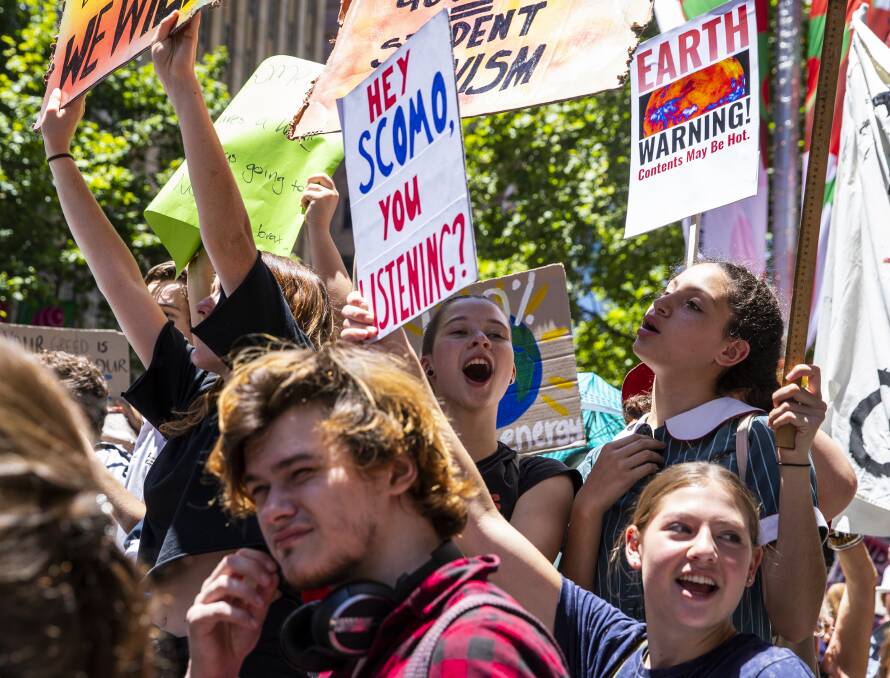
Prime Minister Scott Morrison made an idiotic comment this week.
Subscribe now for unlimited access.
$0/
(min cost $0)
or signup to continue reading
He called for “more learning in schools and less activism in schools”.
He made the comment in Parliament on Monday, referring to the planned “Big School Walk Out” on Friday.
Thankfully, not all politicians took Morrison’s line. The Senate passed a motion on Tuesday in support of the student strikers.
This so-called “school strike for climate action” was probably much bigger than Morrison expected.
An estimated 15,000 students across Australia walked out of school on Friday in cities and regional towns, demanding politicians take urgent action on climate change. Hundreds of students in Newcastle and Maitland joined the protest.
Morrison is a conservative. Conservatives are usually ideologically opposed to strikes. So his comments should be considered in this context.
Nevertheless, it’s alarming for a prime minister to discourage school students from becoming politically engaged, particularly on an issue as big as climate change.
Surely any reasonable person connected to politics would support students having a voice on climate change.
Morrison’s desire for “more learning in schools and less activism in schools” is ironic. The students would have learned much while protesting about things they may never learn inside the four walls of any classroom.
What’s also ironic is Morrison’s comments probably encouraged more students to hit the streets in protest, given the nature of youth rebellion and the desire of some to resist authority.
In fact, the importance of questioning and scrutinising authority and power in a democracy would have been one of the best lessons to learn from Friday’s school strike.
Morrison, nicknamed ScoMo, became a target for some student protesters, who held banners saying: “I am ScoMophobic; Say Nomo to ScoMo; We’ll be less activist if you’ll be less shit; I’ve seen smarter cabinets at Ikea; I’m sure the dinosaurs thought they had time too; There’s no Planet B.”
Social media can often be a moronic medium, but it's heartwarming when it’s used by people seeking to create a better world.
One post that stood out on Twitter was made by Lilly Platt, a 10-year-old environmental campaigner from Holland. She's a youth ambassador for plastic pollution.
“I wish the Australian students the very best on #climatestrike. This is a historic day in Australia. The politicians spoke but the children's voices are louder. We strike for our future!” she wrote on Twitter.
As well as action on climate change, the students called for the Adani coal mine to be stopped, no new coal or gas projects and 100 per cent renewable energy by 2030.
It was refreshing to hear the voices of youngsters. It made the future feel even more relevant. Let’s hope they’re able to stick to their principles as they get older.
Issue: 39,071

